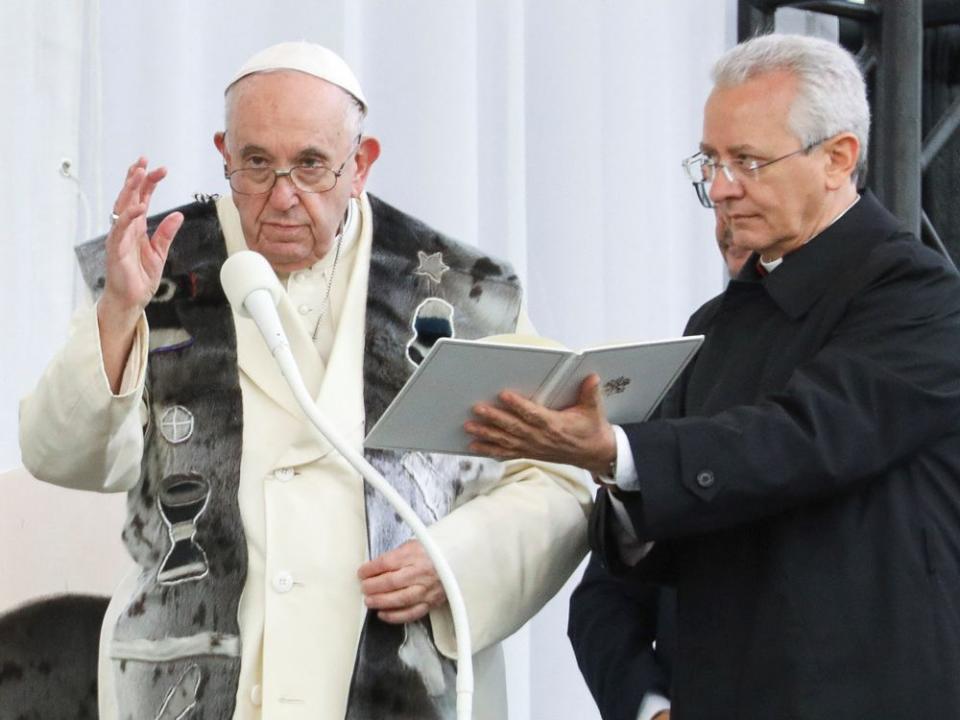William Watson: Critical thinking vs. critical theory

It’s funny how the meaning of a word changes. “Gay” used to mean lighthearted and carefree. “Queer” used to mean strange or odd. “Iconic” used to mean having to do with religious statues or carvings. Now it just means famous. This process of meanings changing is known as “semantic shift” (which 50 years from now may mean something completely different).
When I was at university, first attending then teaching, we always talked about how our goal was to encourage “critical thinking.” In high school you mastered basic prerequisites: reading, writing, mathematics, a little science, some knowledge of the history of your region, country and the world. But in university came your full flourishing as you were challenged to read, engage with, understand and eventually judge for yourself the truth of what you were confronted with.
In this context “critical” meant: skeptical, weighing, judging, in the way a critic weighs and judges the merits of a movie, book or play. Critics need to be skeptical but they should also bring an open mind to whatever work they’re considering. They are allowed to conclude, if that’s their reasoned judgment, that on balance what they’re reviewing is good. (Their review is a statement of that reasoned judgment.) A cousin of “critical” is “scientific.” The word introduces other complications but the scientific state of mind is also essentially skeptical — what’s your theory?, show me the data, have you considered all possible refutations? — but it too is ultimately open to persuasion.
“Critical” has another meaning, however, which seems to be taking over: namely, “negative,” as in “Everybody’s a critic!” Thus to be critical of something is to find fault with it. “Critical race theory” finds much fault and almost no good in the history of relations between “races” (race being a thought-relic of the 19th-century that has made a comeback after agreement people’s “race” is a result, not of their genetic history, but of their being socially “racialized”).
CRT, which in another semantic shift no longer signals “cathode ray tube,” has roots in French intellectualism but has been most influential in the United States, where it is now arguably dominant. In the U.S., the races in question are Black and White (or, depending on style guides, simply white). CRT is also now spilling over into other countries, regions and racialized pairings. Thus one of the more suspenseful aspects of the Pope’s visit last week was whether the critical race theorists at the CBC would accept the successive versions of his apology for the wrongs done to Indigenous children at Catholic schools (which to this skeptical viewer appeared heartfelt, even controlling for the fact that His Holiness is in the business of heartfelt). In the end, the suspense was contrived: apology not accepted, “more needs to be done.”
William Watson: Do Liberals believe in their own carbon tax?
William Watson: Cut debt or cut taxes? How about a little of both?
(Nor was there much suspense in a story some CBC ideology editor thought cried out to be covered, namely the connection between British colonialism and the Commonwealth Games: “Along with celebrations, the games are being criticized by some for their colonial past.” Ah, yes, the journalist’s trusty sidekick: “some.” Hey, everybody understands: the Commonwealth used to be an Empire. Its “members” didn’t volunteer. But almost all the former colonials are wholly self-governing now and past all that, except, it seems, in Toronto.)
In 1951 the philosopher George Grant began his submission to the Royal Commission on National Development in the Arts, Letters and Sciences, better known as the Massey Commission, with the sentence: “The study of philosophy is the analysis of the traditions of our society and the judgment of those traditions against our varying intuitions of the Perfection of God.”
In skeptical, critical, scientific circles Grant’s reference to the perfection (indeed “Perfection”) of God didn’t go over well. His best reviews were from Quebec’s Catholic universities. But doesn’t it seem that with CRT in the ascendant our “analysis of the traditions of our society and the judgment of those traditions” is now an exercise of comparing imperfect reality against an in fact unvarying intuition of the Perfection of some ideal social-justice society and, not surprisingly, finding reality wanting?
The intuition is never well-defined — in fact it is hardly defined at all: what more does the Pope need to do? more! — with the one exception that it is not colour-blind. The Martin Luther King, Jr., ideal of judging people not by the colour of their skin but by the content of their character (admittedly not always an easy thing to do, given that character doesn’t always reveal itself) is viewed as a half-measure both naive and unattainable.
Whatever their academic path, anyone of university age has begun to understand that the real world is a complex place and that how they themselves relate to other people, including people of other “races,” is complicated, multi-dimensional and subject to many competing forces and influences. But if that’s the case, and it clearly is, understanding what’s going on in the world and maybe even figuring out how to change it requires not critical theory but critical thinking: skeptical, weighing, judging, and also open to the twin possibilities that not everything is all-bad and that fixing what is still deficient may not be a simple matter of just one more apology or government program.

 Yahoo Finance
Yahoo Finance 